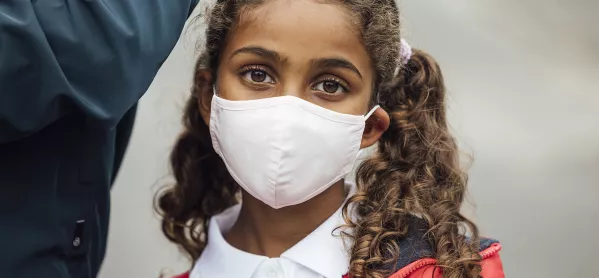A ‘piecemeal approach to education recovery’ helps no one

Since the initial lockdown in the Spring of 2020, when children were largely learning from home, teachers and learners have been playing catch up.
Simply returning to the classroom was never going to solve all the educational, social and personal issues the pandemic has caused and the new School Recovery Strategies report from the Department for Education highlights that schools have employed a wide range of strategies to support educational recovery in response to the challenges created.
The variety of approaches is understandable and, in some ways, reflects the extensive array of school contexts and differing pupil needs.
However, the pandemic has wreaked havoc with children’s education and the scale of the potential educational damage means that individual responses are not enough.
A piecemeal approach
A haphazard and piecemeal approach to educational recovery is not fair on students who need to catch up or their teachers who feel the burden of responsibility for making sure they do.
Though it’s positive the report notes that, as time went on, “academic interventions became more honed and extensive, with more in-class, individual and small group interventions used across all year groups and subjects depending on identified needs and resources”, it also states these interventions were delivered by a range of individuals, from school-based teachers to TAs, supply staff and external tutors.
While this projects an image of all hands on deck, it also leads to questions about the potentially differing quality in support children are receiving based on who their school could get to lend a hand.
Elsewhere in the report, the DfE notes that as of Spring-Summer 2021, focus in schools tended to be on internally developed interventions and that these predominantly targeted groups of students they deemed to be the most in need.
While schools should be commended for endeavouring to help their most vulnerable students as quickly as possible, adopting this sort of strategy does not address the issues faced by the majority of students.
What we need instead is a reset of our whole approach to one that is child-centred and that is supported by well-funded and skilled external agencies.
That’s simply not happening and not something individual schools can influence.
Focus on recovery
What this report highlighted was that schools are undertaking a mammoth task and the DfE does need to do more to support them in developing recovery strategies.
Teachers need to be able to do more than stem the bleeding so that wounds can start to heal. We are now into our third year living with this pandemic, so there has been time to look into what works when it comes to educational recovery.
Let’s examine the evidence we have and then make sure all schools are doing what works. We don’t have the luxury of time to just hope what we are doing is right.
Teachers should have been relieved of the burden of Ofsted inspections and they should not be dealing with this now either.
I am not proposing any reduction in educational standards but the feedback I have heard is that the current inspection teams simply are not showing any understanding of how the pandemic has affected schools and are treating everything as business as usual.
So we need the evidence-informed guidance and the funding to put it into action within our specific context. We need to be trusted to get on with it.
The network effect
And I think there is also a discussion to be had about the different approaches by schools in multi-academy trusts (MATs) and local authority maintained schools during the pandemic.
It seems clear to me that many academies benefitted from being a part of MATs, a situation that allows them to more closely collaborate with other schools and share good practice and ideas. We need to learn from that.
Young people have paid a heavy price during the pandemic, and we owe it to them to make sure we do everything we can to right the course of their education.
Staff working in education have also been put under unimaginable pressure, they deserve clarity and support from the government.
The DfE needs to act now to make sure schools can deliver coherent recovery programmes, made up of actions we know provide real benefits.
Lee Mason-Ellis is CEO of The Pioneer Academy, a multi-academy trust that currently includes twelve primary, junior and infant schools
You need a Tes subscription to read this article
Subscribe now to read this article and get other subscriber-only content:
- Unlimited access to all Tes magazine content
- Exclusive subscriber-only stories
- Award-winning email newsletters
Already a subscriber? Log in
You need a subscription to read this article
Subscribe now to read this article and get other subscriber-only content, including:
- Unlimited access to all Tes magazine content
- Exclusive subscriber-only stories
- Award-winning email newsletters



